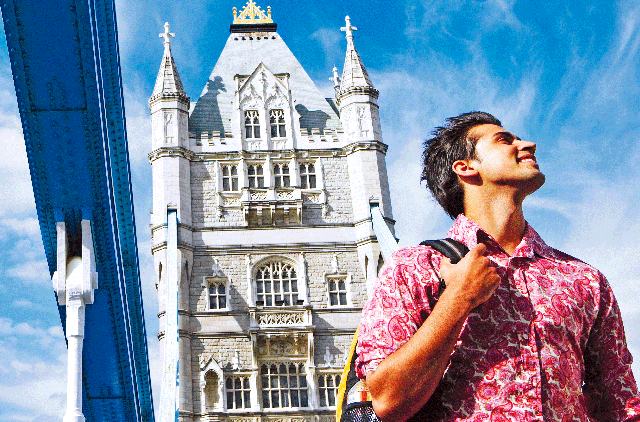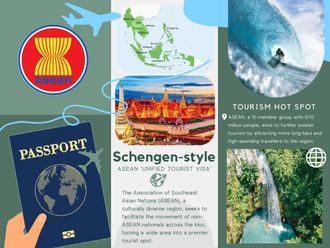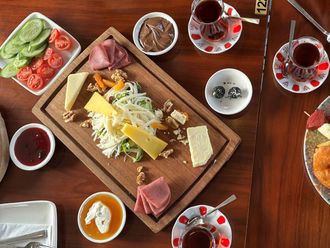Did you hear the one about the Brazilian, the Russian, the Indian and the Chinese on holiday? They all went to different places. And everywhere they went, they took a little Bric with them.
Today’s travel industry is captive to the demands of the Bric (Brazil, Russia, India and China) traveller. Although they form a whole, the bloc’s individual parts demand disparate experiences from their travels. Brazilians are still timid travellers limited by language; Indians want familiar food and a connection to the diaspora; the Chinese pursue prestige; and the Russians seek sun, sea and sand.
In response to the Bric boom, travel operators have begun tailoring their offers accordingly. Beachside hotels are going Kremlin-esque. Unique Chinese-only tour operators are surfacing. Indian chefs are in vogue. And everyone is devising a Brazilian strategy.
Chinese status
The Chinese are now the tour de force in the market. A United Nations World Tourism Organisation report released last month shows that China is currently the world’s largest pool of international tourism capital. A whopping 83.2 million outbound travellers from China pumped a record $102 billion (Dh374 billion) into international tourism last year, which shows a 40 per cent rise from $73 billion in 2011.
Prof Wolfgang Georg Arlt, Director of the privately run China Outbound Tourism Research Institute, Beijing, says Chinese travellers have become fully aware of their immense spending power. “Today the Chinese are saying: ‘You have to play according to our rules. We pay lots of money and we’re a big group.’ There’s no excuse not to have Chinese breakfasts in your hotel, Chinese menus and Mandarin-speaking staff,” says Prof Arlt, who is currently penning a book on the nuance of the modern
Bric traveller.
The Ritz Paris has recently employed a Chinese concierge and The Waldorf Astoria in New York provides Chinese travellers with a tea kettle and a pair of slippers.
Frits van Paasschen, President and CEO of Starwood Hotels and Resorts Worldwide, tells GN Focus that rapidly emerging economies are a target market. Setting up camp inside the emerging markets is key.
“We make sure we have some of the basic amenities that the Chinese traveller may want as they leave their country for the first time,” he adds.
When the Chinese travel, it’s “connected to prestige”, Arlt explains. “They travel to brag and tell their friends where they’ve been; the North Pole, up a mountain, an exclusive club, etc.”
Companies such as Albatross, a Dutch tour operator based in Beijing, is an example of customised travel tours for the Chinese. Albatross offers pricey packages for Chinese-only travellers
to journey to the North Pole while receiving scientific lectures on the region’s geology from a Chinese professor. A trip costs between $20,000 and $50,000.
For the Chinese, who are money-rich but time-poor exclusivity is the biggest sell, owing to their relentless business mentality. “The Chinese never turn their business mentality off,” says Arlt.
It’s raining Russians
The Russians, by contrast, are more traditional holidaymakers. Since the fall of the Berlin Wall in the late 1980s, Russians have relished the chance to venture to pastures new after 40 years of virtual house arrest. Today, more than 40 million Russians take to the airways throughout the year, spending more than $35 billion on travel, according to Euromonitor International.
The Eastern Europeans tend to flock to hot countries offering affordable all-inclusive packages such as Thailand, the UAE, Spain, Italy and Turkey.
In 2011 the UAE saw a 43 per cent bump in Russian spending, becoming a destination of choice, as Egypt suffered a political malaise. This year, more than a million Russians are expected to return.
To continue generating the precious inflow of Russian capital, the UAE has started constructing hotels and tailoring services to appeal to the Russian aesthetic.
The Moscow Hotel in Deira, Dubai, for instance, offers a slice of the Russian capital, with a Red Square nightclub, Bolshoi theatre-style dome, Russian speaking concierges and Russian language menus.
India on the menu
India is emerging as the world’s fastest-growing outbound market. Spending on foreign travel has increased fourfold since 2000. The number of Indians travelling abroad is set to rise from around 15 million today to 50 million by 2020, according to Travel Australia. And the source market for Indian outbound travel is varied and complex.
According to the annual Global Trends Report — researched by Euromonitor International and released by the World Travel Market — Indian travellers are pushing a tourism boom in the Gulf by flocking in large numbers to the region’s souks to purchase precious metals for wedding gifts
and investment.
And the growing Indian diaspora — estimated at approximately 100 million — is a key driver behind increasing Indian outbound travel. About 43 per cent of Indian leisure travellers say visiting friends and relatives was the main reason for their overseas travels, according to an Amadeus-Frost & Sullivan report.
“For many Indians, they have restrictions because of their religion and diet, so it’s not easy for them to travel,” says Arlt.
The Hilton Ras Al Khaimah Resort & Spa, a destination of choice for Indian weddings in the UAE, had to become flexible on food. “We allow [Indians] to bring their own chef who works in our kitchen with our staff: We had to adapt,” said Mohab Ghalli, Country Manager, RAK for Hilton Worldwide, in a previous interview with GN Focus.
Encouraging Brazil
The global Brazilian footprint is in its nascent stage, with only 5.4 million Brazilians travelling abroad in 2011. But new air routes, especially coming in and out of the Middle East thanks to the big three (Etihad, Emirates and Qatar Airways) is aiming to open up a market of great potential.“Etihad’s Sao Paulo-Abu Dhabi service opens the destination up to one of the most important segments on the world tourism stage,” says Mubarak Al Nuaimi, Director Promotions & Overseas Offices, Tourism Culture Authority Abu Dhabi.
Arlt says Brazilians have begun travelling, but are not too adventurous. “The [Brazilian] rich are a small group: the wealth is very concentrated. So they go to Portugal because of the language, and Paris and London for shopping. ■
Make or Bric
Rapid urbanisation, rising disposable incomes and fewer government restrictions on foreign travel have seen the Bric traveller herald a new era in international tourism







